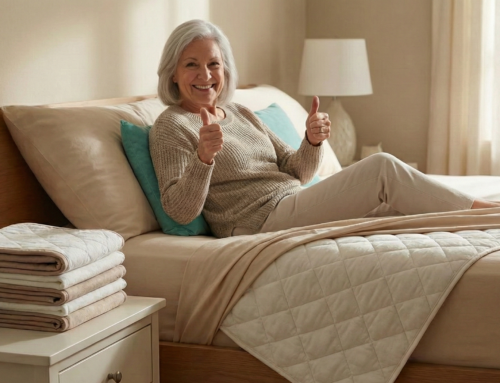Caring for seniors is both rewarding and complex. Among the many ways of caring, the role of 24/7 care in the home stands out as being misunderstood. Due to its nature, there are misconceptions that may discourage potential carers from considering it as a viable option. By busting these myths, we seek to clarify and inspire confidence in those considering this noble and fulfilling vocation.
Myth 1: Elderly care revolves largely around physical health.
How it really is: comprehensive care takes the whole person into account. Although physical health is part of it, equal emphasis should be placed on the emotional, psychological and social aspects. In the home environment, caregivers play an important role in creating an environment that stimulates the mind, nurtures the spirit, and fosters deep interpersonal relationships. The opportunity to share everyday life moments, from morning routines to evening conversations, enhances the depth of the bond formed. However, the main focus of care usually revolves around the patient’s illness and needs. And any reputable employer will give you detailed information about both.
Myth 2: 24 hours a day, 7 days a week means you never stop working.
How it really is: the concept of “24/7” can indeed be misleading. In the world of in-home caregiving, it does mean the constant presence of a caregiver, but it does not equate to endless hours of work. Care organisations recognise the importance of rest, breaks and personal time. In practice, therefore, ’24/7 care’ often involves structured shifts according to the patient’s needs, back-up support and regular free time for recovery.
Myth 3: Significant memory loss is a standard aspect of aging.
How it really is: Although aging may bring on mild forgetfulness, the onset of significant cognitive decline or dementia is not a given for everyone. Armed with this knowledge, in-home caregivers can implement routines and activities that promote cognitive health, such as puzzles, reading, and stimulating conversations. If you want to find out more about dementia and how to deal with its symptoms, you can find more information here.
Myth 4: Caregiver’s personal time at home is always disrupted.
How it really is: the well-being of the caregiver directly affects the quality of care provided. Carers usually have dedicated time for relaxation, personal interests and socialising. Their emotional and physical health remains a priority, ensuring that they are in the best shape for their clients. Otherwise, caregiver burnout can occur, which has a negative impact on both the caregiver and the patient.
Myth 5: Being a home carer is an isolated experience.
What it’s really like: although the role is undoubtedly demanding, it offers unique opportunities to forge deep relationships. In addition to relationships with clients, caregivers often develop lasting relationships with the client’s family, neighbors, and the broader community. Some care agencies also provide platforms for carers to network, share experiences and support each other.
Myth 6: Home care is generally better than care in a facility.
How it really is: Every care setting has its advantages. Although home care offers a familiar and individual environment, it may not be the ideal solution for every individual. The success of care in the home environment depends on the compatibility between the needs of the client, the home environment and the expertise of the caregiver.
By addressing these myths, we offer potential home carers a clearer idea of what they can expect. While challenging, this role provides unique opportunities for personal and professional growth.
Enter in-home care with Atena
Are you considering a move to in-home care? Atena, a leader in elder care placement, is your trusted partner on this journey. Not only do we connect dedicated caregivers with appropriate opportunities, but we also offer ongoing support, training and resources. By choosing Atena , you are joining a community that values and celebrates the unique contribution of each caregiver. Together, let’s raise the standards of care for older people.







